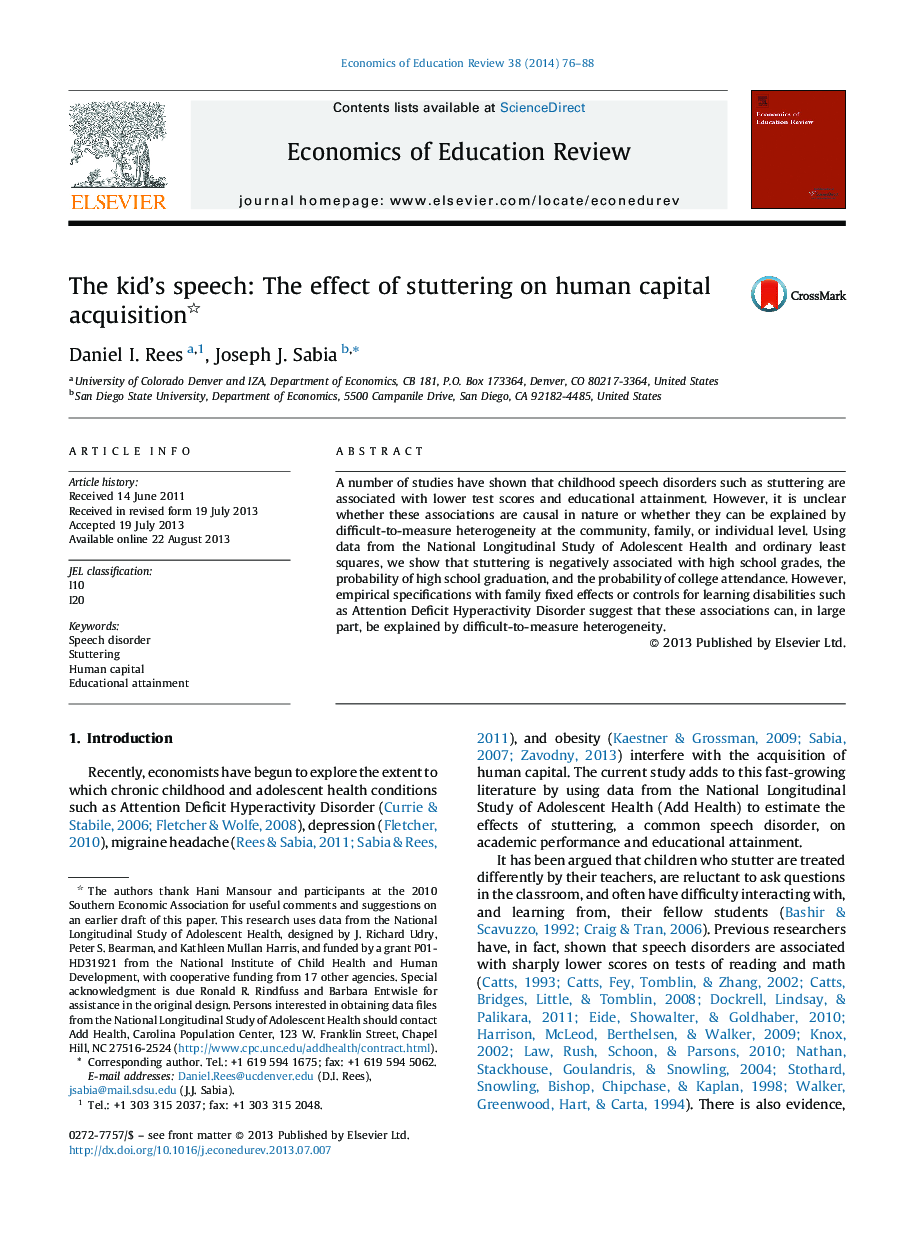| Article ID | Journal | Published Year | Pages | File Type |
|---|---|---|---|---|
| 354376 | Economics of Education Review | 2014 | 13 Pages |
•We use data from the National Longitudinal Study of Adolescent Health to examine the effect of stuttering on education.•OLS estimates show that stuttering is negatively related to GPA and the probability of HS graduation and college attendance.•However, family fixed effects estimates suggest that these estimates can be explained by difficult-to-measure heterogeneity.•Controls for learning disabilities like Attention Deficit Hyperactivity Disorder also reduce the association substantially.
A number of studies have shown that childhood speech disorders such as stuttering are associated with lower test scores and educational attainment. However, it is unclear whether these associations are causal in nature or whether they can be explained by difficult-to-measure heterogeneity at the community, family, or individual level. Using data from the National Longitudinal Study of Adolescent Health and ordinary least squares, we show that stuttering is negatively associated with high school grades, the probability of high school graduation, and the probability of college attendance. However, empirical specifications with family fixed effects or controls for learning disabilities such as Attention Deficit Hyperactivity Disorder suggest that these associations can, in large part, be explained by difficult-to-measure heterogeneity.
